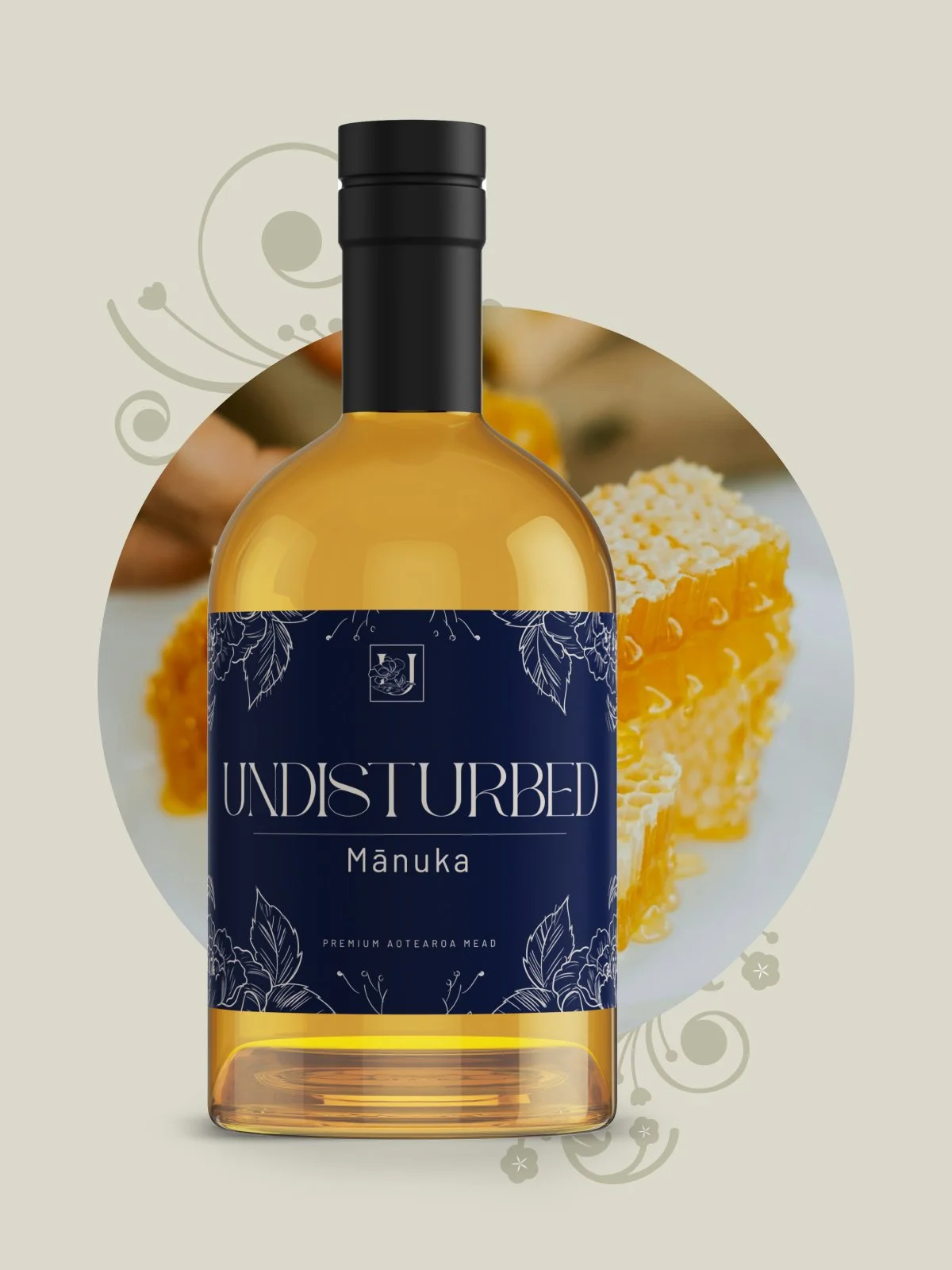The Data Behind the Purity of Mead
Fermented honey has a wholesome sound to it, but what does the data say? We recently had our mead tested in the lab, and the results give us a window into what sets all mead apart.
Nectar’s protein is retained in the mead.
Flowers’ nectar contains protein. Bees then make honey with it. Undisturbed keeps its mead making process as pure and natural as possible - so we were well-pleased when the lab results showed trace amounts of protein naturally carried from honey. It’s only a small amount, but it’s unique — a quiet reminder that this drink begins with nectar..
Cleaner by Nature
Independent testing showed undetectable levels of heavy metals (below 0.10 mg/kg). That’s an exceptionally clean profile for any alcoholic drink, and it reflects the pristine New Zealand landscapes where our bees forage. With nothing synthetic added, the result is a drink as pure as the forest it comes from.
Low in Sulphites
While wine, beer, and many ready-to-drink options use preservatives to extend shelf life. Our meads are crafted with only minimal sulphites thanks to honey being a natural preservative. For many people, this makes for a gentler, more natural beverage.
A Different Kind of Drink
Mead isn’t wine, beer, or cider- but its own category. It’s something older and more elemental, carrying traces of the flowers or the forest. With undetectable heavy metals, minimal sulphites, and a natural trace of protein, our meads offer an uncommon purity.
| Test Result | Undisturbed Mead | Typical Wine | What It Means |
|---|---|---|---|
| Heavy metals | Undetectable (<0.10 mg/kg) | Trace amounts often present | Exceptionally pure |
| Sulphites | Low (minimal added) | 50–200 mg/L | Gentler on many drinkers |
| Protein | Trace present | None | Unique to honey fermentation |
| Sodium | Trace | Trace | Negligible difference |

